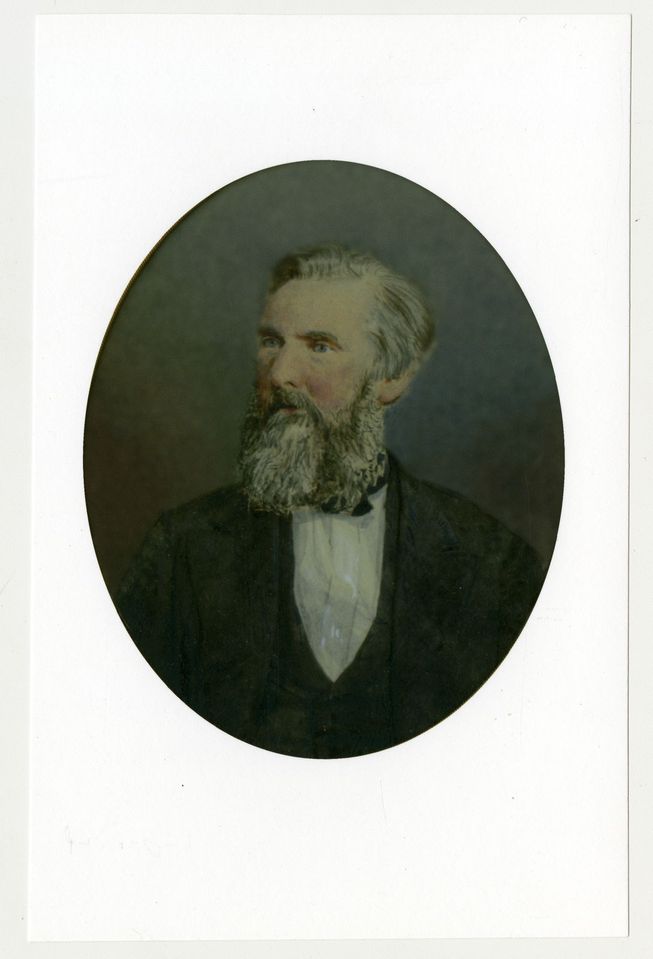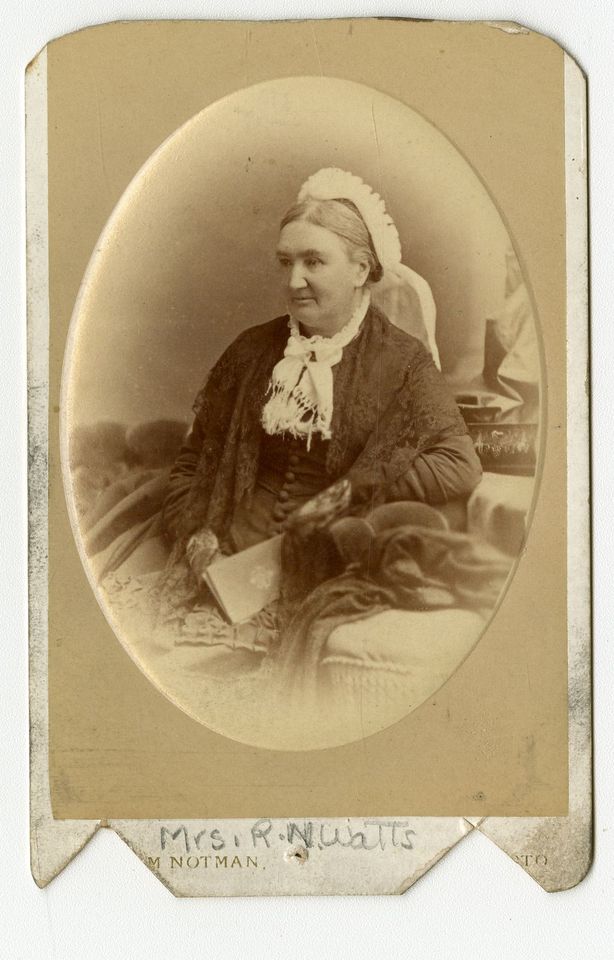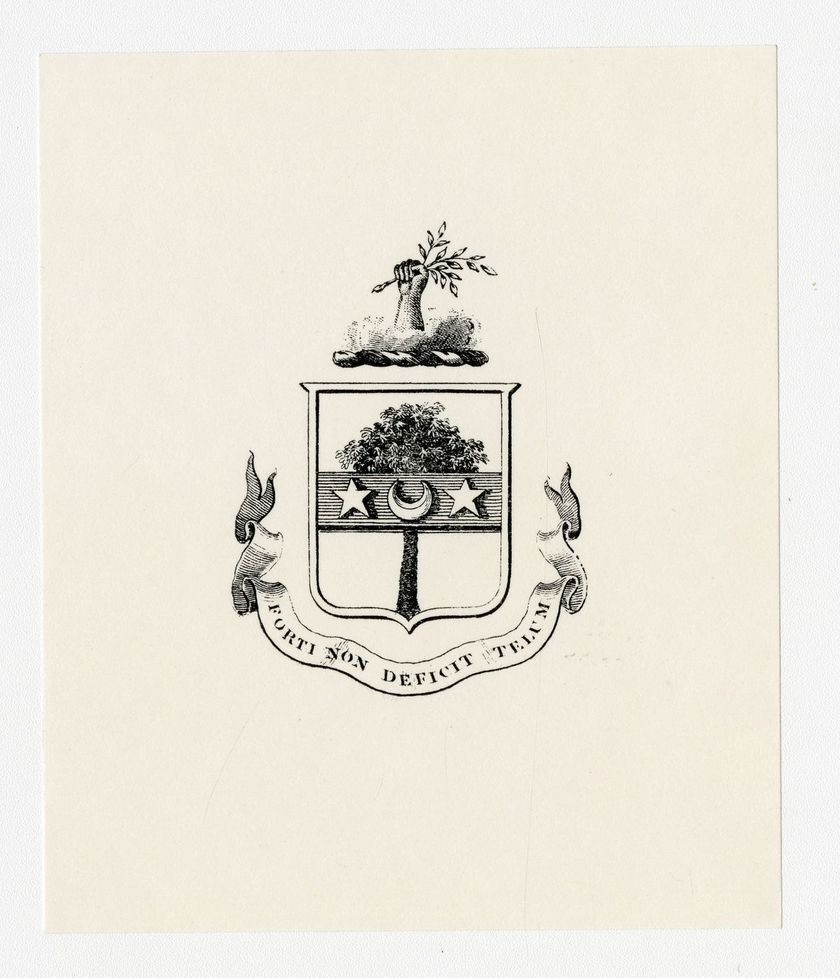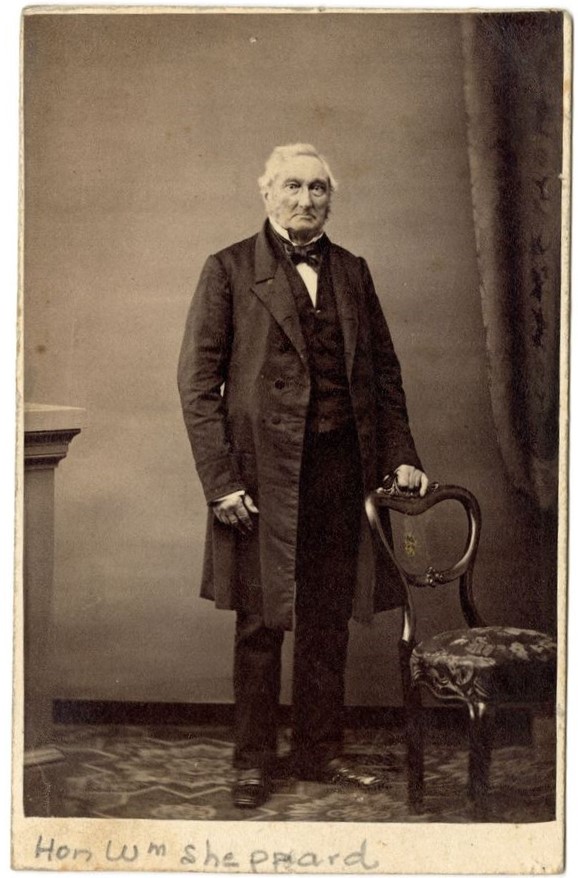Heriot’s Heir, Robert Nugent Watts
Like Heriot, Robert Nugent Watts was originally from the Channel Island of Jersey. He was born on February 2, 1806, to Stephen Watts, a career military man, and his wife, Sarah Nugent. The young Watts emigrated overseas in 1827 after finishing his studies, becoming an assistant in the Office of the Civil Secretary of Lower Canada. Once established, he married Charlotte Sheppard, the daughter of William Sheppard, a businessman and Member of the Executive Council of Lower Canada from 1837 to 1841, and his wife Harriet Campbell. The wedding took place at Holy Trinity Anglican Church in Quebec City on January 8, 1839. The couple went on to have six children, five girls and one boy: Laigh Elizabeth Sarah (1840–1914), Harriet Heriot (1843–1906), William John (1846–1907), Charlotte Mary Ann (1848–1928), Susannah Elizabeth Henrietta (1850–1851), and Margaret Ann Nugent (1857–1937). They also adopted a niece, Sarah Watts (1837–1859), after she was orphaned at three years old.
Robert Nugent Watts wanted to enter politics, and he received help from his cousin Frederick George Heriot to get elected on March 15, 1841, representing the riding of Drummond in the Parliament of the Province of Canada (which united both Upper and Lower Canada). He sat as a Tory, a traditional supporter of the British monarchy. Watts also became president of the Drummondville Agricultural Society from the moment of its founding, around 1841. Heriot invited Watts and his family to live with him at Comfort Hall, which they accepted, becoming the owners of the property in December 1842. Upon Heriot’s death a year later, Watts inherited the majority of Heriot’s fortune. Watts then had a luxurious new home built on the estate, which was christened Grantham Hall. He devoted his time to raising livestock and eventually earned an excellent reputation as one of the first breeders of thoroughbred horses in Canada.
Robert Nugent Watts was re-elected to Parliament in 1844 and 1848. He then left his role as MP on November 6, 1851—by which point he had been leaning increasingly toward the Reform position—in order to get involved in local politics. In September 1852, he became a councillor on the Drummond County Council, working alongside his father-in-law, William Sheppard, who had been elected mayor a few months earlier. A new municipality was created a few years later, uniting the townships of Grantham, Wendover, and Simpson. Its first elections were held on January 26, 1858, and among the elected councillors, Watts emerged as mayor a few weeks later, formally taking on this role on February 8. The new municipality was destined to be short-lived, however, as the townships of Simpson and Wendover wished to create their own municipality as early as 1862, eventually achieving their goal in 1864. A few short years later, Robert Nugent Watts passed away in his Drummondville home on April 19, 1867, at the age of 61.





